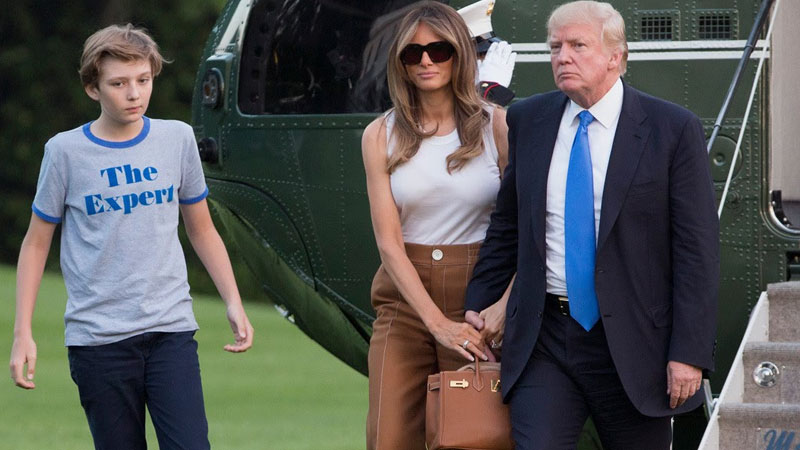Trump’s Defense Likely to Blame Staffer for Business Records in Hush Money Trial

Brendan McDermid-Pool/Getty
In a recent unfolding of events in the hush money trial involving former President Donald Trump, legal experts suggest that Trump’s defense team is poised to shift blame onto a subordinate for the contentious business records. Former federal prosecutor Neama Rahmani shared insights in an interview with Salon, speculating that Trump’s legal strategy will involve distancing the former president from the questionable financial maneuvers attributed to his accountant.
“They’re going to blame the accountant,” Rahmani said. “The accountant is going to be the fall guy.” “I think they’re going to say that Trump had no involvement in booking these payments to Cohen as legal expenses,” Rahmani said. “That was something the accountant did.”
Rahmani’s forecast is that Trump’s attorneys will argue that he was unaware of the dubious bookkeeping practices employed to manage payments to his former fixer, Michael Cohen. These payments were reportedly listed as legal expenses, a characterization that has become a central issue in the trial. The defense is expected to maintain that Trump was not directly involved in these financial decisions, which were handled by staff members without his knowledge or direct approval.
The case against Trump includes a 34-count indictment, alleging that he manipulated business records to conceal hush money payments made to adult film star Stormy Daniels and former Playboy playmate Karen McDougal during the lead-up to the 2016 presidential election. These payments were purportedly made to prevent any damage to Trump’s election prospects by keeping allegations of affairs out of the public eye.
Trump has consistently denied these affairs and entered a plea of not guilty to the charges. During the trial, Trump’s attorney Todd Blanche emphasized in his opening statement that although Daniels did sign a non-disclosure agreement for $130,000, the payments to Cohen were not a reimbursement for that sum. This narrative attempts to sever the direct link between the nondisclosure agreement payment and the financial transactions recorded as legal expenses.
Adding to the conversation, a tweet from Ryan Goodman, another former federal prosecutor, referenced this aspect of the case. Goodman highlighted an opening statement and linked it to a 2020 court decision in California, where Trump reportedly admitted to reimbursing Cohen for the hush money paid to Daniels.
This strategic approach by Trump’s defense, suggesting negligence or mismanagement by Trump’s staff rather than wrongful intent by Trump himself, seeks to mitigate his culpability in the alleged financial misconduct. As the trial progresses, this narrative will likely be scrutinized both in court and in the court of public opinion, as observers and legal analysts evaluate the plausibility and implications of such a defense.
The trial continues to garner significant attention, not only for its legal ramifications but also for its potential political implications, reflecting the ongoing complex relationship between Trump’s business practices, his presidency, and his current legal battles. As more details emerge from the courtroom, the strategies employed by Trump’s legal team will undoubtedly play a crucial role in shaping the outcomes of these proceedings.


